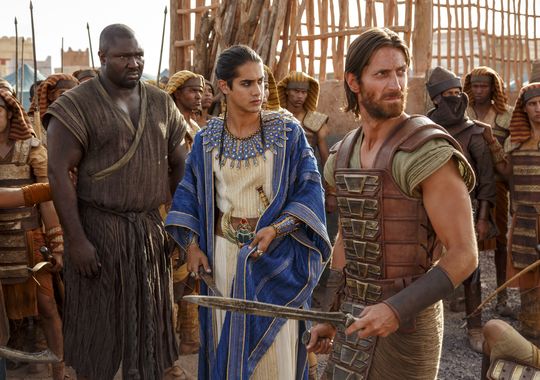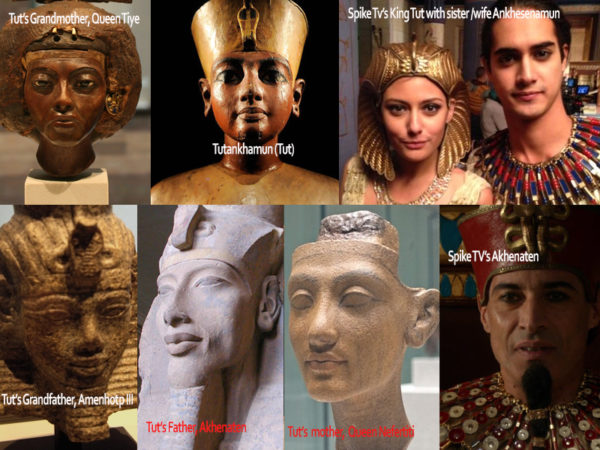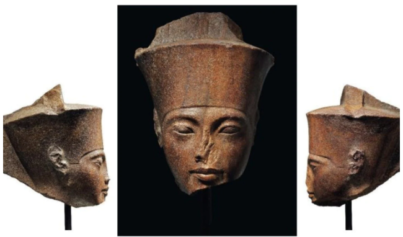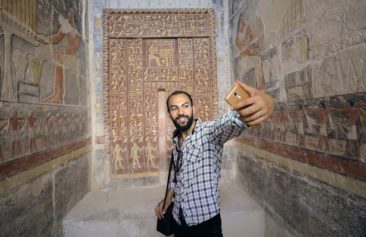Since the beginning of modern history, there has been an attempt to “whitewash” the history of Ancient Egypt. Many Egyptologists, historians, archaeologists and filmmakers have made attempts to separate Ancient Egypt from the continent of Africa and sever the link that connects the region to Black excellence, an act directly inspired by white supremacy. Although Black scholars have forced modern Egyptologists to revisit the false narrative told by their predecessors, Hollywood has insisted on maintaining this trend by using Caucasians to portray Ancient Egyptians. Many in the media have praised the makers of Spike TV’s Tut for deviating from this trend. However, the six reasons below will demonstrate the supposedly diverse cast of the miniseries is a continuation of the white supremacists’ tactic of whitewashing the Ancient Egyptian narrative and disregarding Black contributions to human civilization.
Ancient Egypt Portrayed as ‘Melting Pot’ Rather Than Black African Empire
After renowned scholars Cheikh Anta Diop and Theophile Obenga presented overwhelming evidence from anthropology, blood groups, iconography, ancient written sources, melanin tests and the significance of the word KMT proving the Africanness of Egypt, many Eurocentric and Arab institutions still find it difficult to accept Egypt as a primarily Black civilization. Instead they present a “melting pot” theory to imply that ancient Kemet was multiracial, which still is an argument that seeks to separate the achievements in Ancient Egypt from Black Africa. Diop says that Ancient Egypt may have been multiethnic, but that doesn’t mean multiracial. Even a number of conservative Egyptologists such as Shomarka Keita and Frank Yurco argue that the ancient Egyptians were closely related to the Nilo/Sudanic people like Nubians, sharing substantial genetic admixture.
Caucasian Depiction of King Tut and His Family
As stated before, Black scholars have presented a plethora of evidence suggesting a primarily Black Ancient Egypt. In fact, Dr. Chancellor Williams, a Black writer, historian and sociologist, argues that King Tut’s grandmother, Queen Tiye, and all of her children were Black. Genetics company DNA Tribes presented corroborating evidence when a DNA analysis it performed on the mummies of Tutankhamen and his family revealed that the 18th Dynasty rulers had more in common with Africans from tropical West Africa, South Africa and the Great Lakes Region than they do to any other group in the world. Yet Spike TV’s Tut failed to represent the boy Pharaoh and his family accurately, instead using Caucasian-looking actors and actresses.




